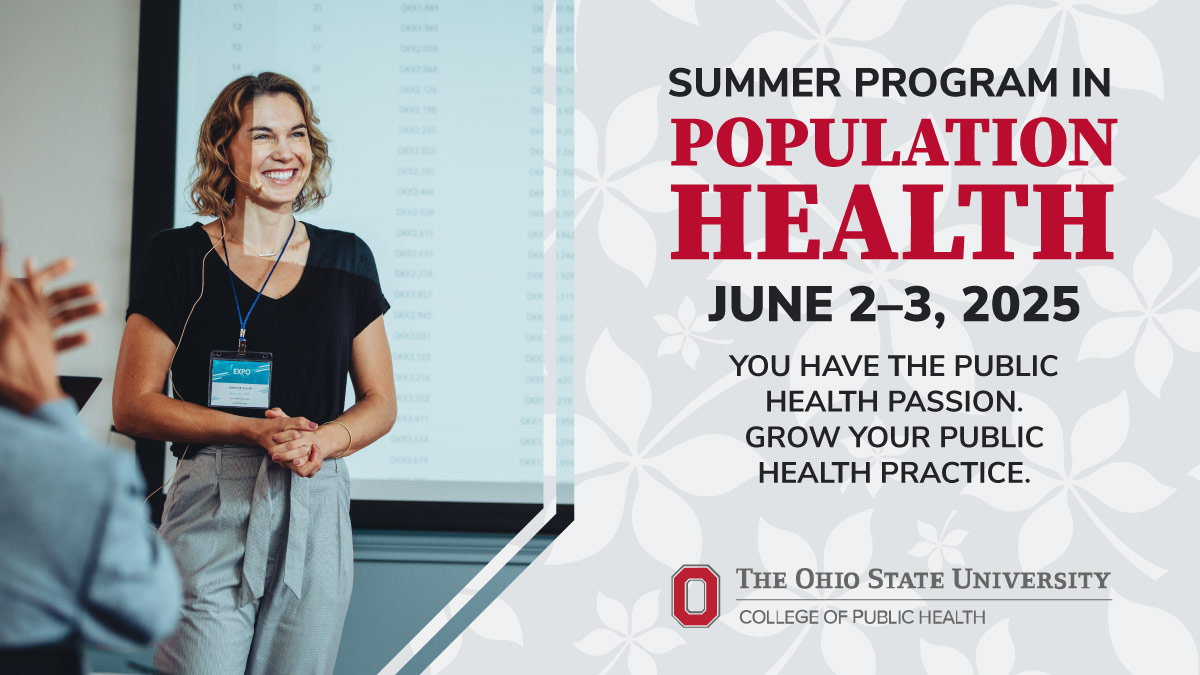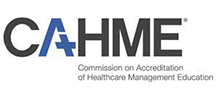When:
-
Where: Cunz Hall, The Ohio State University, Columbus Campus
1841 Neil Ave.
Columbus,
OH
43210

The Summer Program in Population Health provides professional development courses focused on engaging those who work in governmental public health, health care administration and practice, social work, mental and behavioral health, community health, and others invested in improving health and reducing disparities. Each course provides approximately 14 contact hours of content.
All courses are held at Cunz Hall on The Ohio State University’s Columbus campus, 1841 Neil Ave., Columbus, Ohio 43210.
Registration and price
- Course rate: $550 per course
- Student rate: $100 per course
- Continuing education units are available for CHES and MCHES.
For more information on how to receive the student rate, bulk registration or purchase order registration, contact us.
2025 Course lineup
Session 1: June 2-3, 8:30 a.m. to 5 p.m.
Data Visualization Foundations for Public Health: From Static Charts to Interactive Dashboards
Course Instructor: Liz Whelan-Jackson, Ohio Colleges of Medicine Government Resource Center
Effective data visualization is essential for communicating public health insights. This hands-on, two-day workshop introduces foundational principles of data visualization, covering design best practices, chart selection, storytelling techniques, and accessibility considerations. Participants will gain experience with R (ggplot2 and ggmap) for developing static charts and maps, and Tableau for developing interactive dashboards. Through a combination of lectures, hands-on exercises, and group activities, attendees will develop the skills needed to create clear, impactful, and actionable visualizations for diverse public health audiences.
Register for Summer Program
Secure your spot for the 2025 Summer Program in Population Health.




